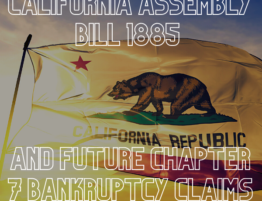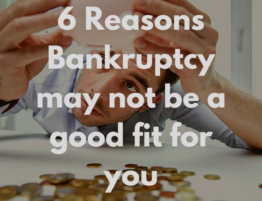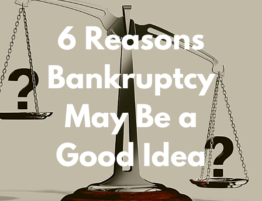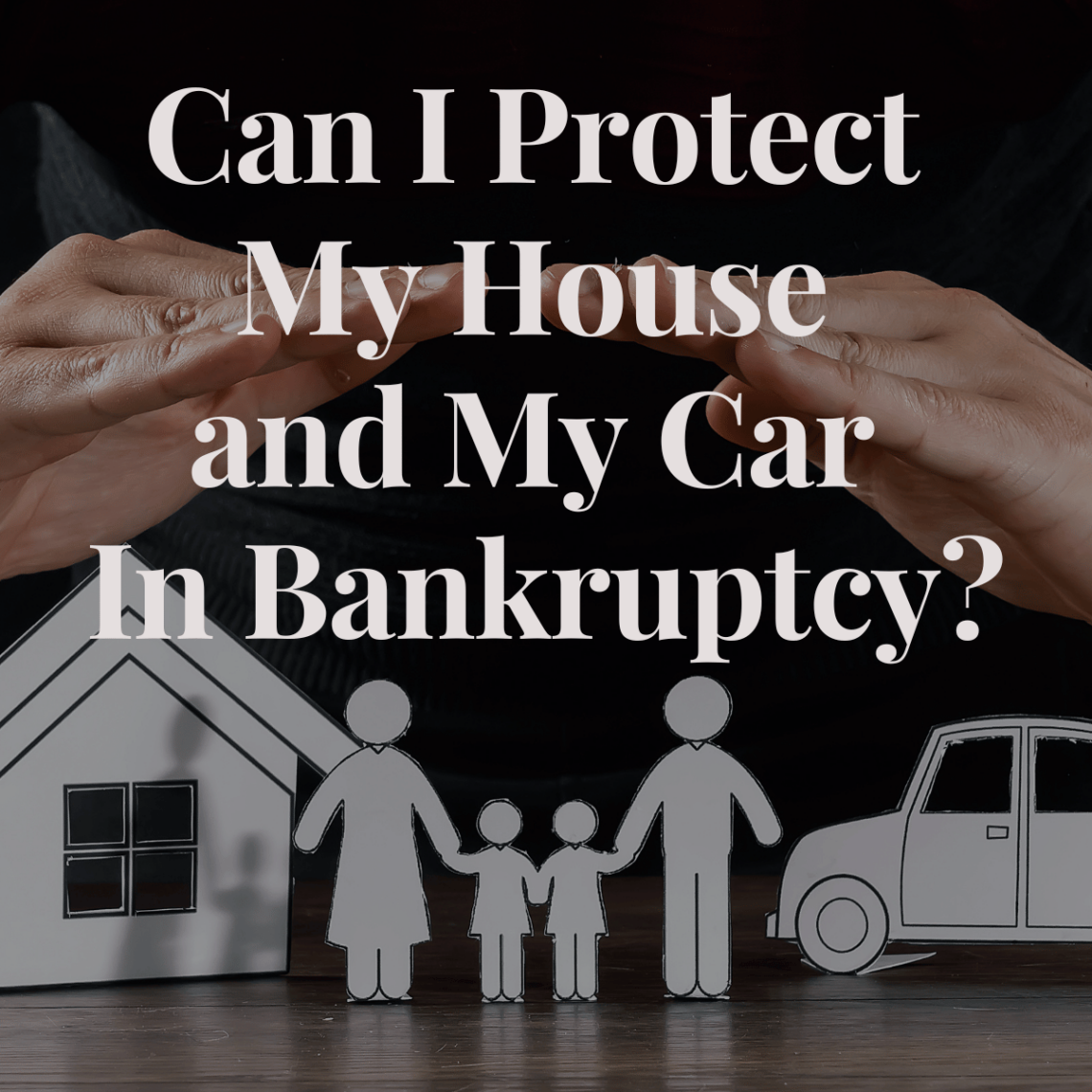
Bankruptcy may sound like a scary word. When many Americans think of bankruptcy, they imagine houses being seized. They imagine public humiliation. They imagine expensive bankruptcy attorneys.
In actuality, bankruptcy often puts consumers in a more comfortable position than where they began.
Additionally, bankruptcy isn’t always uncomfortable or humiliating. Since the COVID-19 pandemic, most consumers in Southern California attend their hearings via telephone or ZOOM and never step foot inside a courthouse.
Moreover, bankruptcy attorney fees are federally regulated, so a good bankruptcy will be reasonably priced and affordable for most.
In short, bankruptcy is a legal process allowing individual consumers or businesses to eliminate or restructure their debts. It is a complex process that can be difficult to navigate without a bankruptcy attorney, but it can relieve those struggling with overwhelming debt.
This blog post will explain bankruptcy and bankruptcy exemptions to California consumers.
If you still have questions after reading this post, contact an experienced and affordable bankruptcy attorney in San Diego for more answers.
What is Bankruptcy?
Bankruptcy is a legal proceeding that allows individuals or businesses to eliminate or restructure their debts. It will enable people struggling with overwhelming debt to get a fresh start. Bankruptcy can be filed under different chapters of the bankruptcy code, depending on an individual’s circumstances.
The Most Common Types of Bankruptcy
There are several types of bankruptcy, but the most common are Chapter 7 and Chapter 13. Chapter 7 bankruptcy is also known as “liquidation” because it involves liquidating assets to pay off debts. Chapter 13 bankruptcy is also known as “reorganization” because it involves reorganizing debts into a manageable payment plan.
Bankruptcy Exemptions (Protections) Made Simple
Bankruptcy exemptions are laws that protect certain assets from being seized by creditors during bankruptcy proceedings. California has two sets of bankruptcy exemptions: the California bankruptcy exemptions and the federal bankruptcy exemptions, and California residents can choose which group of exemptions to use.
California Bankruptcy Exemptions
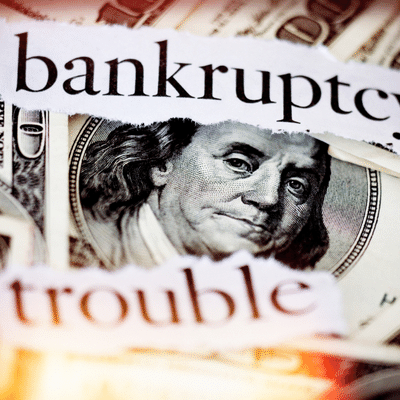
- Homestead exemption: Protects up to $600,000 of equity in a primary residence.
- Personal property exemption: Protects over $30,000 of personal property, including furniture, clothing, and appliances.
- Vehicle exemption: Protects over $7,000 of equity in a motor vehicle.
- Retirement account exemption: Protects most retirement accounts, including 401(k)s and IRAs.
“California is one of the more consumer-friendly states for filing bankruptcy,” explains Alex Lopez, office manager of T.L. Brown Law Firm in San Diego, California. “Our bankruptcy attorneys can often protect most of our client’s assets when filing Chapter 7 bankruptcy.
If you are considering filing for bankruptcy in California, it is essential to understand the bankruptcy exemptions available to you. Bankruptcy exemptions are laws that protect certain assets from being seized by creditors in a bankruptcy case.
In California, two sets of exemptions are available to filers: System 1 and System 2.
System 1, also known as the 704 exemption, protects certain types of assets, including a homestead exemption that protects a certain amount of equity in your principal residence. Other assets that may be protected under System 1 include personal property, tools of the trade, and retirement accounts.
System 2, also known as the 703 exemption, only applies in bankruptcy and cannot be used to protect property against creditors outside of bankruptcy.
Some courts may not allow System 2 exemptions, especially if you are filing for bankruptcy outside of California due to domicile rules. “You have to reside in California for a certain amount of time before filing for bankruptcy in California. You also have to live in California for an even longer period before taking advantage of the coveted California exemptions,” asserts Tristan Brown, a bankruptcy attorney in San Diego.
It is important to note that bankruptcy exemptions are subject to change and may vary depending on your bankruptcy filing date. For example, the homestead exemption amount may vary depending on the date you purchased the home and the county where your primary residence is located.
Which Exemptions Should You Choose? A Bankruptcy Attorney Can Help You Decide.
California residents can choose between two (2) sets of bankruptcy exemptions. It is essential to consult with a bankruptcy attorney to determine which set of exemptions is best for your circumstances.
“Which set of exemptions you choose depends upon your circumstances. A knowledgeable bankruptcy attorney will look at your house, cars, and other assets to determine which exemptions are best suited for you,” explains Attorney Tristan Brown. “Consult a bankruptcy attorney to determine which exemptions will help you keep the most assets.”
Bankruptcy and Your Credit Score
Bankruptcy can harm your credit score, but it is not the end of the world. Bankruptcy can help you rebuild your credit score over time by eliminating your debts and allowing you to start fresh. It is possible to buy a house after filing for bankruptcy, even if you filed for Chapter 7 or Chapter 13 bankruptcy.
“My clients often ask me if they will be able to purchase a house after bankruptcy,” says bankruptcy Attorney Brown. “It is possible to purchase a home after filing bankruptcy, but it may take some time for you to rebuild your credit after filing.” If any bankruptcy attorney in San Diego claims you can immediately buy a house after filing, you may be getting misleading advice.”
Bankruptcy and Keeping Your House, Cars, and Assets
One of the biggest concerns for people considering bankruptcy is its impact on their assets. While bankruptcy can involve liquidating assets in Chapter 7 bankruptcy, many assets are protected by bankruptcy exemptions.
“So many people think bankruptcy means you lose your house, and this is usually not the case,” assures Brown. “I’ve filed thousands of bankruptcy cases and have yet to have a single client lose their house. An experienced bankruptcy attorney in San Diego can ensure your greatest assets are protected.”
Bankruptcy and Your Debts

Credit Card Debts
Credit card debt is a typical unsecured debt that can be discharged in bankruptcy. When an individual file for bankruptcy, an automatic stay is put in place that prevents creditors from pursuing debt collection activities such as calling or suing the debtor. This automatic stay also prevents new debt from being added to the debtor’s existing debts, which can relieve those struggling to make ends meet.
“Most of my clients come to me with overwhelming credit card debt,” says San Diego bankruptcy attorney Tristan Brown. “During the COVID-19 pandemic, so many Americans were forced to rely upon credit cards due to reduced income and rising costs due to inflation.” Total credit card debt reached a record of $930.6 billion by the end of last year.
In a Chapter 7 bankruptcy, unsecured debts such as credit card debt, medical bills, and personal loans can be discharged, meaning the debtor is no longer legally responsible for paying them. However, secured debts such as mortgages and car loans cannot be discharged in a Chapter 7 bankruptcy, and the debtor may have to surrender the collateral for those debts.
In a Chapter 13 bankruptcy, the debtor agrees to a repayment plan that usually lasts three to five years, and this plan may include repayment of some or all unsecured debts, including credit card debt. The debtor must make regular payments to a bankruptcy trustee, who distributes the fees to creditors according to the plan’s terms.
It is important to note that some credit card debts may not be eligible for discharge in bankruptcy. For example, debts obtained through fraud or misrepresentation may not be dischargeable. Additionally, if a debtor has recently used a credit card to purchase luxury goods or services or obtain cash advances, those debts may be non-dischargeable.
In conclusion, credit card debt can be discharged in bankruptcy, but the specific implications depend on the type of bankruptcy filed and the debts’ nature. It is essential to speak with a bankruptcy attorney to fully understand the impact of filing for bankruptcy with credit card debt.
Tax Debts
Tax debts are a unique type of debt when it comes to bankruptcy. Whether or not tax debts can be discharged in bankruptcy depends on several factors, including the type of tax debt, the age of the debt, and whether or not the debtor filed tax returns on time.
In general, income tax debts may be eligible for discharge in bankruptcy if they meet specific criteria. For example, the tax debt must be for income taxes only and not for other types, such as payroll taxes. Additionally, the tax debt must be for a tax year due at least three years before the bankruptcy filing, and the debtor must have filed a tax return for that year at least two years before the bankruptcy filing.
If a debtor meets these criteria, they may be able to discharge their income tax debts in bankruptcy. However, it is essential to note that some tax debts, such as tax liens or penalties for fraud, may not be dischargeable.
It is also important to note that tax debts may not be eligible for discharge in a Chapter 7 bankruptcy involving liquidating assets to pay off debts. In a Chapter 7 bankruptcy, the debtor may be required to pay off their tax debts through liquidating assets, or they may be able to enter into a payment plan with the IRS.
In a Chapter 13 bankruptcy, the debtor agrees to a repayment plan that usually lasts three to five years, which may include repayment of some or all tax debts. However, the debtor must still meet the eligibility criteria for tax debt discharge.
In conclusion, tax debts are treated differently in bankruptcy than other types of debt, and whether or not they can be discharged depends on several factors. It is essential to speak with a bankruptcy attorney to fully understand the implications of filing for bankruptcy with tax debts.
Student Loan Debts
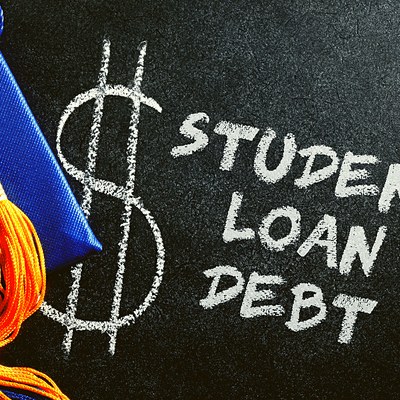
“Discharging student loan debt is not impossible, but there are several hurdles one lump through to successfully discharge student loan debt in a Chapter 7 bankruptcy,” explains Bankruptcy Attorney Tristan Brown.
To discharge student loan debts in bankruptcy, the debtor must demonstrate that repaying the loans would impose an undue hardship on the debtor and their dependents. This is a strict standard to meet and requires the debtor to file an additional legal action known as an adversary proceeding. Even if the debtor is successful in this proceeding, only a portion of their student loan debt may be discharged, and the process can be time-consuming and expensive.
Because of the difficulty in discharging student loan debts in bankruptcy, borrowers may consider other options for managing their debt. For example, federal student loan borrowers may be eligible for income-driven repayment plans that base the monthly payment on the borrower’s income and family size. Private student loan borrowers can negotiate a repayment plan or settlement with their lenders.
It is also important to note that student loan debts, like other debts, can be put on hold during a bankruptcy proceeding through an automatic stay. However, interest will continue to accrue on the loans, and the borrower will be responsible for paying any missed payments after the bankruptcy proceeding is complete.
In conclusion, student loan debts are generally not dischargeable in bankruptcy, and borrowers struggling with debt should consider other options for managing their debt. Speaking with a bankruptcy attorney or a student loan counselor is essential to understand the options for managing student loan debt.
Child Support and Alimony
“Domestic support obligations are not dischargeable in bankruptcy,” says Attorney Brown. “Don’t think filing Chapter 7 will get you out of child support payments because it will not provide you any relief. Besides, you should take care of your kids.”
Bankruptcy and Your Future
Bankruptcy can relieve those struggling with uncontrollable debt after the COVID-19 pandemic. You are not alone if you suffer from unmanageable debt payments and overwhelming monthly expenses. If you are wondering whether or not bankruptcy is right for you, consult an experienced bankruptcy attorney in your state.

